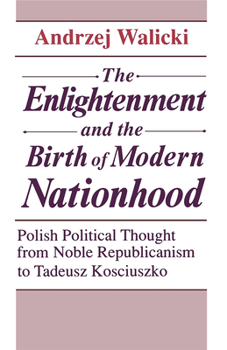The Enlightenment and the Birth of Modern Nationhood: Polish Political Thought from Noble Republicanism to Tadeusz Kosciuszko
Renowned historian Andrzej Walicki here challenges the conventional understanding of the rise of nationalism and the nation-building process in East-Central Europe.
Arguing that the views advanced by Hans Kohn and others are marred by an inadequate knowledge of Polish history and thought, Walicki examines the emerging nationalism of the eighteenth century in a comparative perspective. He shows how Poland, the largest state in East-Central Europe, developed a modem national consciousness and, in fact, a political nationalism earlier and more successfully than has generally been acknowledged.
Walicki presents his case by examining the main currents of Polish thought in the Enlightenment from Noble Republicanism to the development of the progressive constitution of May 3, 1791. A final chapter analyzes the ideas of Tadeusz Kosciuszko, the leader of the Polish uprising of 1794, showing him as an ideologist of "new republicanism" and a bridge between the Enlightenment and Romantic periods. This chapter will be of particular interest to readers familiar with Kosciuszko as a hero of the American Revolution.





